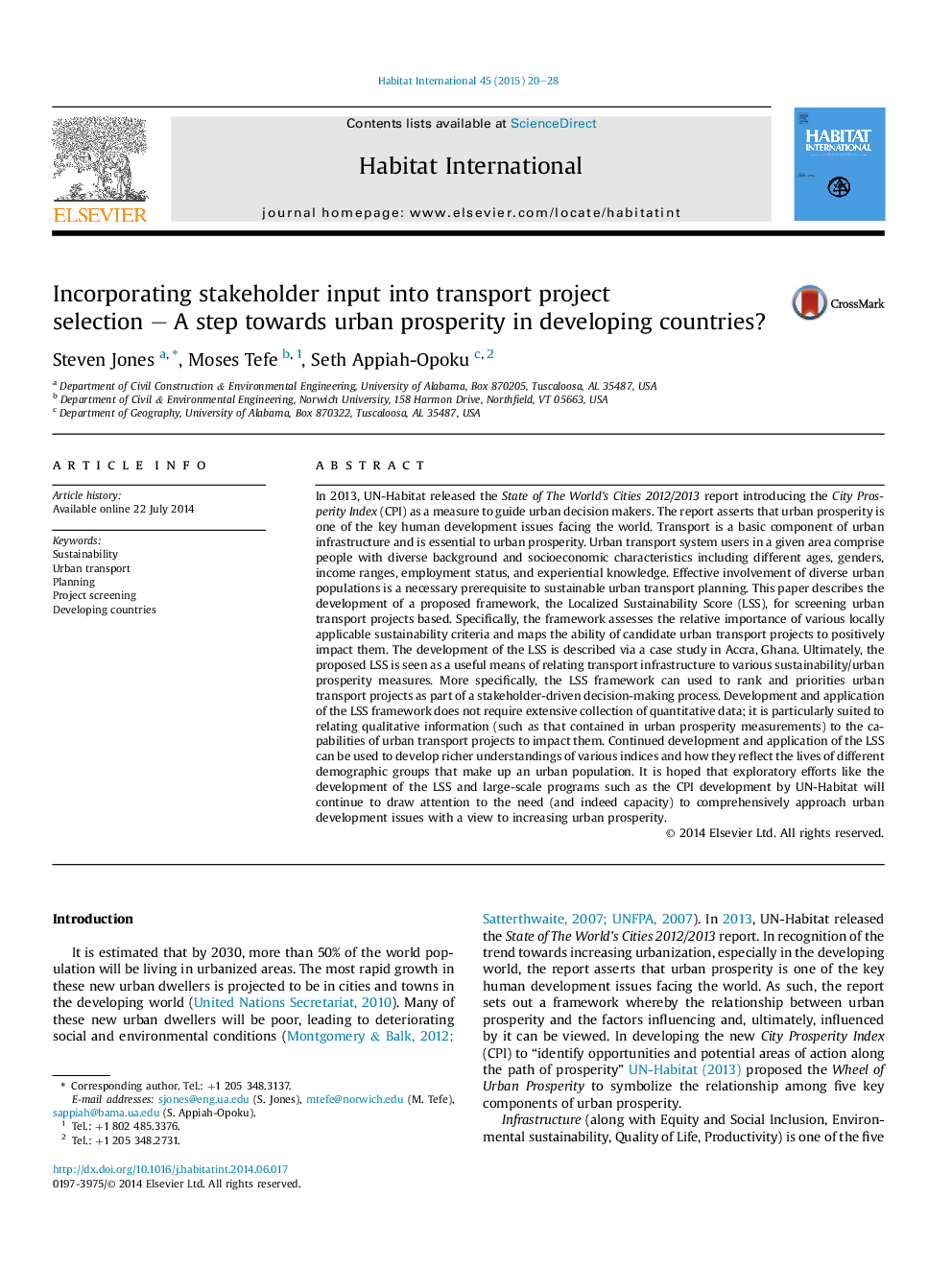| Article ID | Journal | Published Year | Pages | File Type |
|---|---|---|---|---|
| 1048031 | Habitat International | 2015 | 9 Pages |
•A framework is proposed for screening and prioritizing urban transport projects using qualitative stakeholder input.•It is a participatory approach based on the integration of indigenous and scientific knowledge.•It is presented within the context of developing countries but can be readily extended elsewhere.•The framework is applied to a case study in Accra, Ghana.•The framework performed well when compared to project rankings from previous studies.
In 2013, UN-Habitat released the State of The World's Cities 2012/2013 report introducing the City Prosperity Index (CPI) as a measure to guide urban decision makers. The report asserts that urban prosperity is one of the key human development issues facing the world. Transport is a basic component of urban infrastructure and is essential to urban prosperity. Urban transport system users in a given area comprise people with diverse background and socioeconomic characteristics including different ages, genders, income ranges, employment status, and experiential knowledge. Effective involvement of diverse urban populations is a necessary prerequisite to sustainable urban transport planning. This paper describes the development of a proposed framework, the Localized Sustainability Score (LSS), for screening urban transport projects based. Specifically, the framework assesses the relative importance of various locally applicable sustainability criteria and maps the ability of candidate urban transport projects to positively impact them. The development of the LSS is described via a case study in Accra, Ghana. Ultimately, the proposed LSS is seen as a useful means of relating transport infrastructure to various sustainability/urban prosperity measures. More specifically, the LSS framework can used to rank and priorities urban transport projects as part of a stakeholder-driven decision-making process. Development and application of the LSS framework does not require extensive collection of quantitative data; it is particularly suited to relating qualitative information (such as that contained in urban prosperity measurements) to the capabilities of urban transport projects to impact them. Continued development and application of the LSS can be used to develop richer understandings of various indices and how they reflect the lives of different demographic groups that make up an urban population. It is hoped that exploratory efforts like the development of the LSS and large-scale programs such as the CPI development by UN-Habitat will continue to draw attention to the need (and indeed capacity) to comprehensively approach urban development issues with a view to increasing urban prosperity.
